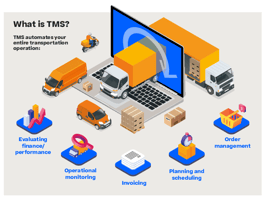With the world's population projected to reach 9.7 B by 2050 (from 7.8 B today) and global food demand set to increase anywhere from 50-80%, it's no secret that food security will be a challenge. Couple in unstable trade relations and threats to productivity from the effects of climate change and the situation looks daunting.
Even now, food insecurity is rampant, though rather than true scarcity, the issue is largely a logistics and distribution challenge. Just this month, we've read of fields of onions and vegetables in the U.S. south being tilled because the logistics aren’t in place to sell.
So what does a better future look like? In commodities, businesses will need to tackle at least 3 things will need to happen to avert a crisis:
- Farmers worldwide will need to increase crop production significantly to meet demand. Improving productivity through new materials and new techniques will be critical.
- Continued advances in logistics, distribution, storage, and processing technologies will be needed to ensure that food supplies can be safely and efficiently moved from fields around the world, even in disruption, without waste.
- Growers, merchants, and traders will need to become more agile to adapt to turbulent trade conditions, to get products to areas of need, profitably.
- (In addition to lobbying for trade normalcy - support your associations!)
It is increasingly important for US food growers (at #2 spot in world production) to take note. Even without Covid-19, conditions for commodity trade for U.S. growers have been increasingly volatile. The U.S.’s biggest trading partners (in order, Canada, China and Mexico) have all had political or economic disagreements with the U.S. in recent years that have led to increased tariffs or reduced import quotas, effectively reducing the volume of American sales to those regions.
So where do US growers fit in?
U.S. agricultural output is growing faster than domestic demand for many products: exports have continued to grow steadily over the last two decades, reaching $142 billion in 2018 (a net trade surplus of almost $11 billion.) Bulk commodities remain the backbone of U.S. exports, with close to 50% of rice and wheat and 70% of tree nuts and cotton destined for export markets. Meanwhile, higher-priced commodities such as dairy, fresh produce and proteins (meats and poultry) have grown at a faster rate than the traditional bulk commodities.
As a result of high production and trade wars, US producers are now actively looking for new markets for their products; while bilateral and regional agreements are positioning other countries like Brazil, Mexico, etc. to fill the void in the China-U.S. trade war.
Operational edge
For U.S. growers, gaining operational edge is even more important than ever. Bulk exporters in the U.S. are going to need to figure out how to be more agile in managing their products and placing products to manage the volatility of their government’s trade policy. If they can gain precise operational control, that bodes well for future business - and for future food security.
As one large food commodities broker told me this week, “business always finds a way”. Let’s hope so - for global trade and for food security.
TradeLanes makes it easy for global commodity traders + merchants to easily and agilely manage trade execution operations - from sales contract to inventory to agile booking to delivery. Check out how the platform works today.
About Our Product
TradeLanes Trade Delivery Platform is the new generation of global trade management software. TradeLanes brings global trade execution entirely online, automating and streamlining all aspects of an international sale - from issuance of sales contracts to product quality, inventory allocation, fulfillment, bookings, loading, shipment workflow and execution - and applying machine learning ensure that cargo is delivered on-time and at-margin.





Leave a Comment